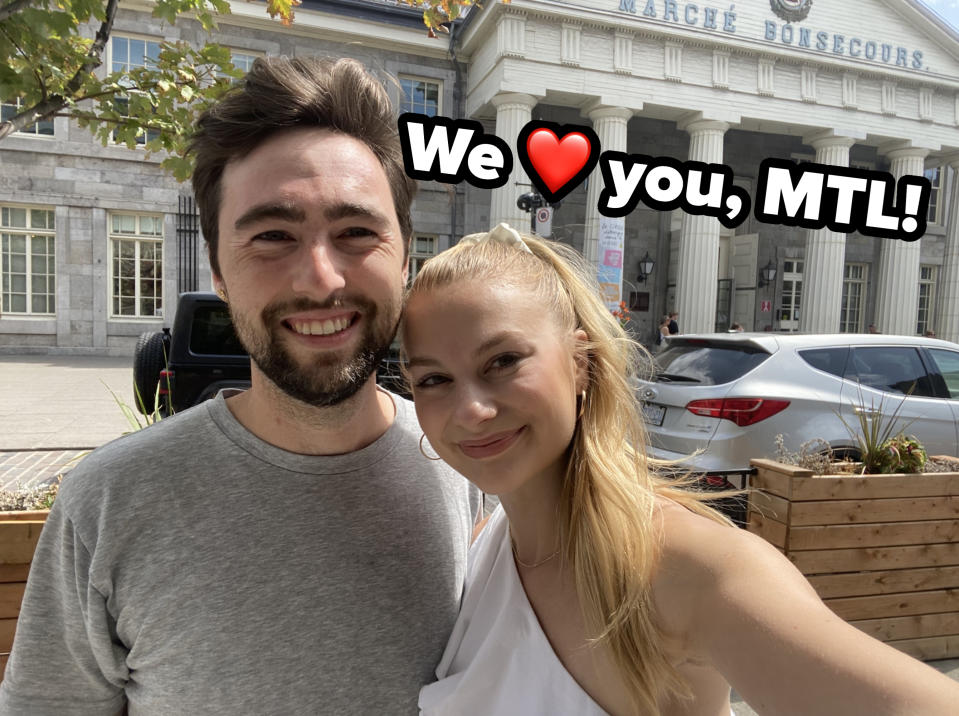"I Was Humbled": 9 Hard Truths I Wasn't Prepared For As An American Living Abroad
With the election around the corner and the political decisions in the United States becoming increasingly precarious, we'll probably hear the age-old "I'm moving to Canada" reaction once again. Some people have already done it, and I suspect more have it on their conscience.
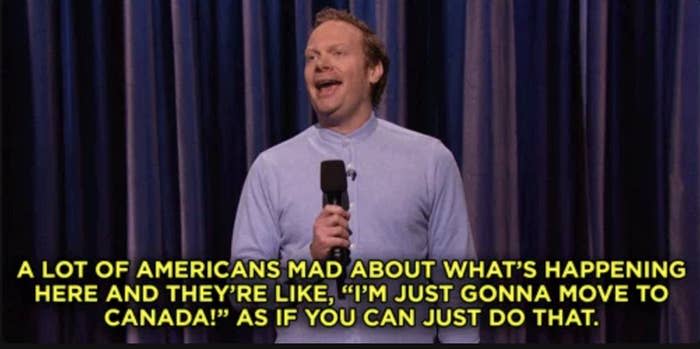
I hate to scare anyone away from the gorgeous Canadian soil (it truly is lovely), but as someone who has made the move, it's not as easy as you might think. It's not IMPOSSIBLE, but you can't exactly just cross the border and call yourself a Canadian (sadly).
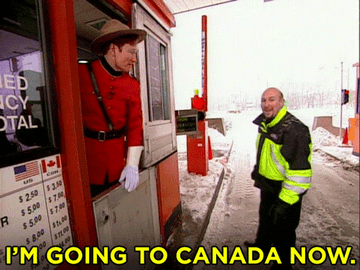
Let me back up, though, and introduce myself! Hi, I'm Alana, and a few years ago, my partner and I moved to Canada (Montréal, Québec, more specifically). My partner was moving for his PhD, and I joined him on an open work permit (more on that later). Here we are, newly moved in with our bbs:

Now, before I get to the point of this article—which is about the unexpected things that came up for me as an American abroad—if you have the chance, you absolutely SHOULD live abroad. Being around new people, ideas, and customs expands your worldview and makes you a more informed, understanding American. Just make sure you're doing so respectfully.

All that being said, let's get into all the things I ran into that kinda caught me off guard as an American abroad:
Note that everyone's situation is different, especially depending on the country you're in, but this is my own (and my partner's, who helped me collaborate on some ideas!) experience, specifically in Québec, Canada.
1.You still need to file US Taxes.
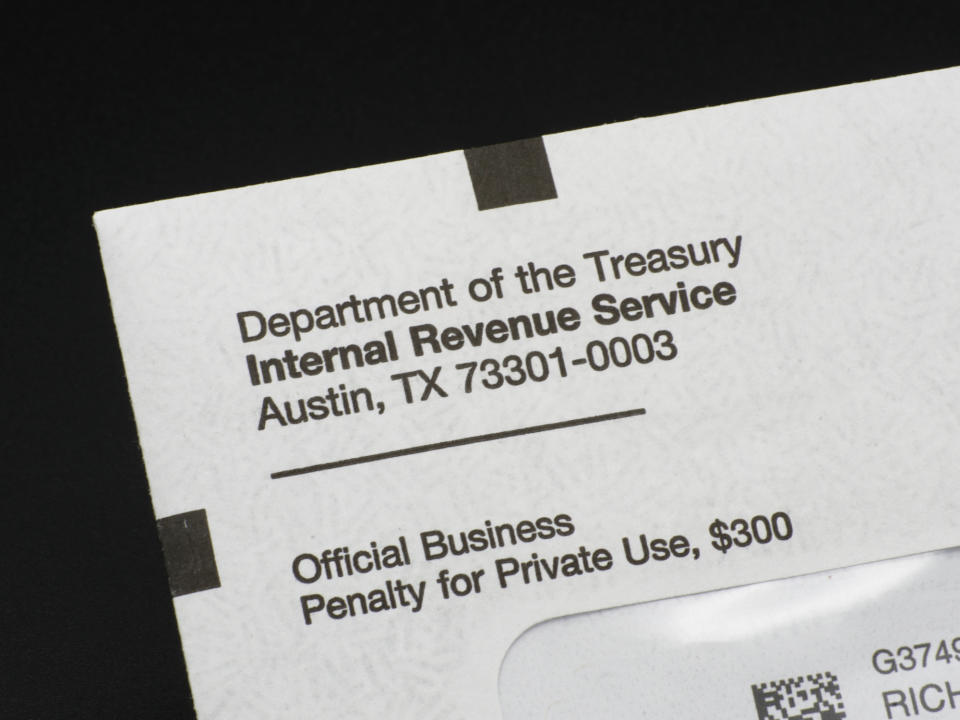
Ah, the lovely International (it's a joke) Revenue Service. The United States is one of the only countries in the world that requires its citizens abroad to file and pay taxes on their joint worldwide income. That means you must still file and pay taxes to whichever country you live in and to the US (even if you're not living there). This can get tricky, and to avoid double taxation (or breaking the law, cause, of course, it's not simple), both my partner and I hired tax accountants who have experience in both the US and Canada to help us (there are few and they are usually very in-demand).
Luckily, foreign tax credits allowed us not to be double taxed, but overall, it was a real hassle and became more expensive since we had to hire people to ensure we were doing everything right (I did not want to risk messing that up).
2.Healthcare isn't really "free."
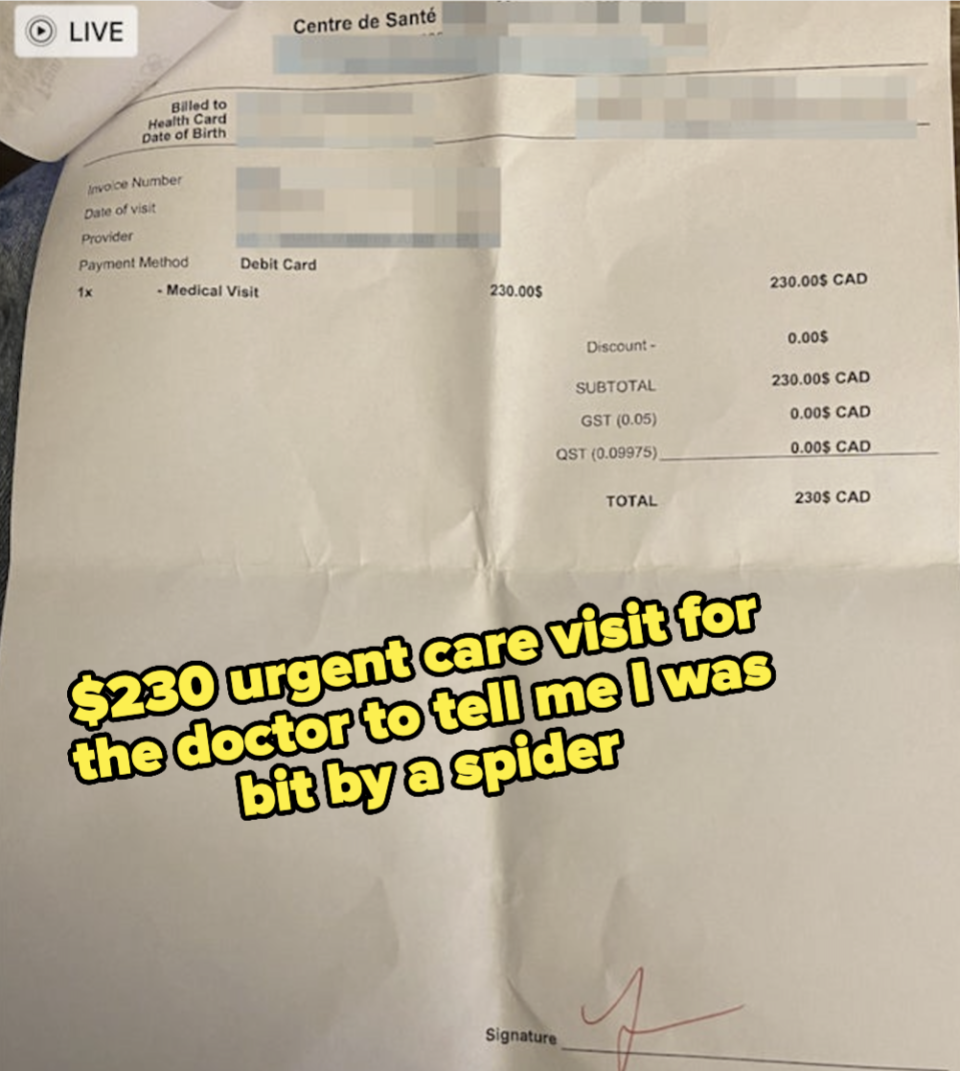
While healthcare outside the US is almost always more affordable (universal healthcare, who?), you might not have access to "free" healthcare unless you become a permanent resident or citizen. In Canada, while prices are definitely less (a general doctor consult costs us between $200-300 out of pocket for me), unless you can completely afford out-of-pocket costs, it's still best to have insurance if you don't qualify for the universal healthcare plan (and a lot of people still have private insurance even if they have universal healthcare).
My partner and I both needed private insurance and did not qualify for universal healthcare in Québec since we were considered "temporary" residents. He had health insurance coverage through school, and I paid out of pocket for private insurance. For me, my coverage was pretty incredible compared to the US — I paid $183 a month, which covered all my basic preventative care and outpatient mental healthcare (like therapy) with a small $10 co-pay per visit. I had a $2,500 deductible on things like inpatient care, emergency services, and x-rays. Once the deductible was met, services were 100% covered (😲) aside from pregnancy and maternity care, which were not covered unless I paid extra monthly for it (and I believe there was a 1-year waiting period to be covered).
3.Getting health insurance (or becoming a resident/citizen) might be harder if you have pre-existing health conditions or a disability.

If you have any pre-existing conditions and need private insurance, you might not be covered or you might have an enormous monthly payment if a company does decide to cover you. This has been a huge problem for my partner, which ultimately has been a factor in his decision to move back to the US. His healthcare is extremely expensive, and while his school’s insurance would cover his condition, it only did so up to a certain amount. Because he was treated for his condition before he arrived in Canada, private insurance companies would not approve him unless he waited for the condition to become “stable” (which also meant he could not be treated for it, since treatment = unstable). After a year, he applied again, but companies denied him (except for one with a monthly payment over $600, which was not affordable to him as a grad student). Ironically, even though he was in a country with “free” healthcare, he didn’t see the benefits and was actually kind of (for lack of a better word) f*cked and couldn’t receive care. We’re still waiting to see what the damage is since he’s now gone years without proper care.
Additionally, because his condition is considered a "demand" in the eyes of the healthcare system (i.e., expensive), if he were to apply to get permanent residency in Canada, there's a chance they would reject him. When you apply for permanent residency, you must submit a medical exam to determine your admissibility to Canada. Your application can be refused if your medical needs cause "a significant demand on Canada's public health and social services or could pose a risk to the health or safety of Canadians." Essentially, if you have a disability, it can make immigration a whole lot harder.
4.You won't have credit history in your new country.
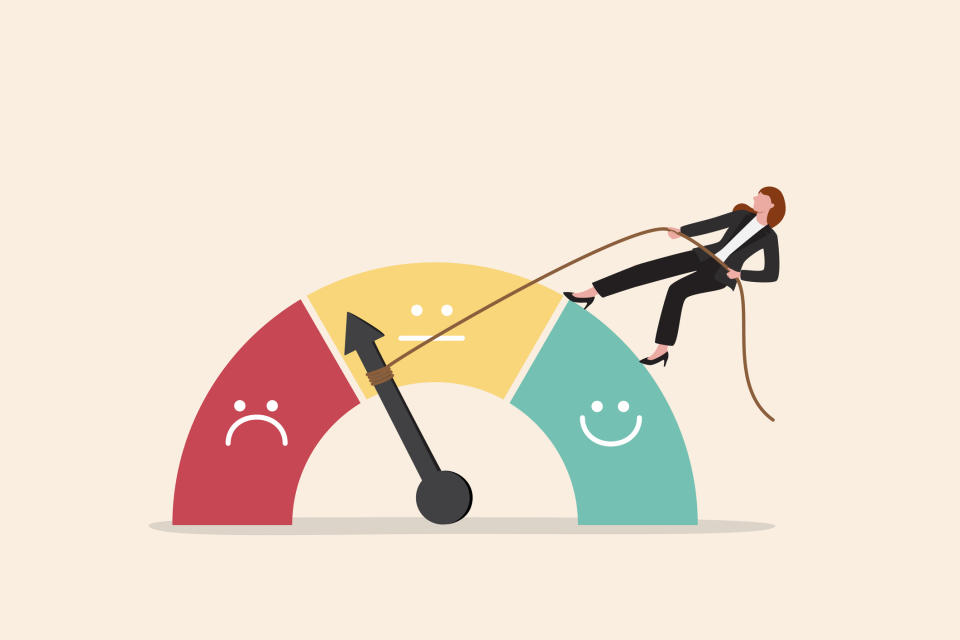
OK, phew. That was a lot about healthcare (which ironically was the most stressful issue for us in Canada). Onto the next roadblock we ran into — while my partner and I worked to build and maintain our credit in the US, that kinda didn't matter once we arrived in Canada. Probably unsurprisingly, but your credit doesn't transfer with you; you have to build new credit.
Because we had no credit history, it was particularly difficult to secure an apartment. When we found our apartment, the landlord required us to pay 6 months' rent upfront (!), which was honestly wild (and illegal!!!). However, since Montréal is also harder on pets (it's difficult to find apartments that accept animals), we felt we didn't have too many other options. And we loved the apartment 🫠 The good thing is rent was much more affordable than where we came from (NYC), so it felt a little less bad. (According to Zumper, the average 1-bedroom rent in Montreal right now is $1,779 vs $4,313 USD in NYC 😳). Still, it was certainly a big bill, and we were fortunate to have enough saved to pay it.
5.You'll constantly compare what is and isn't like the US.
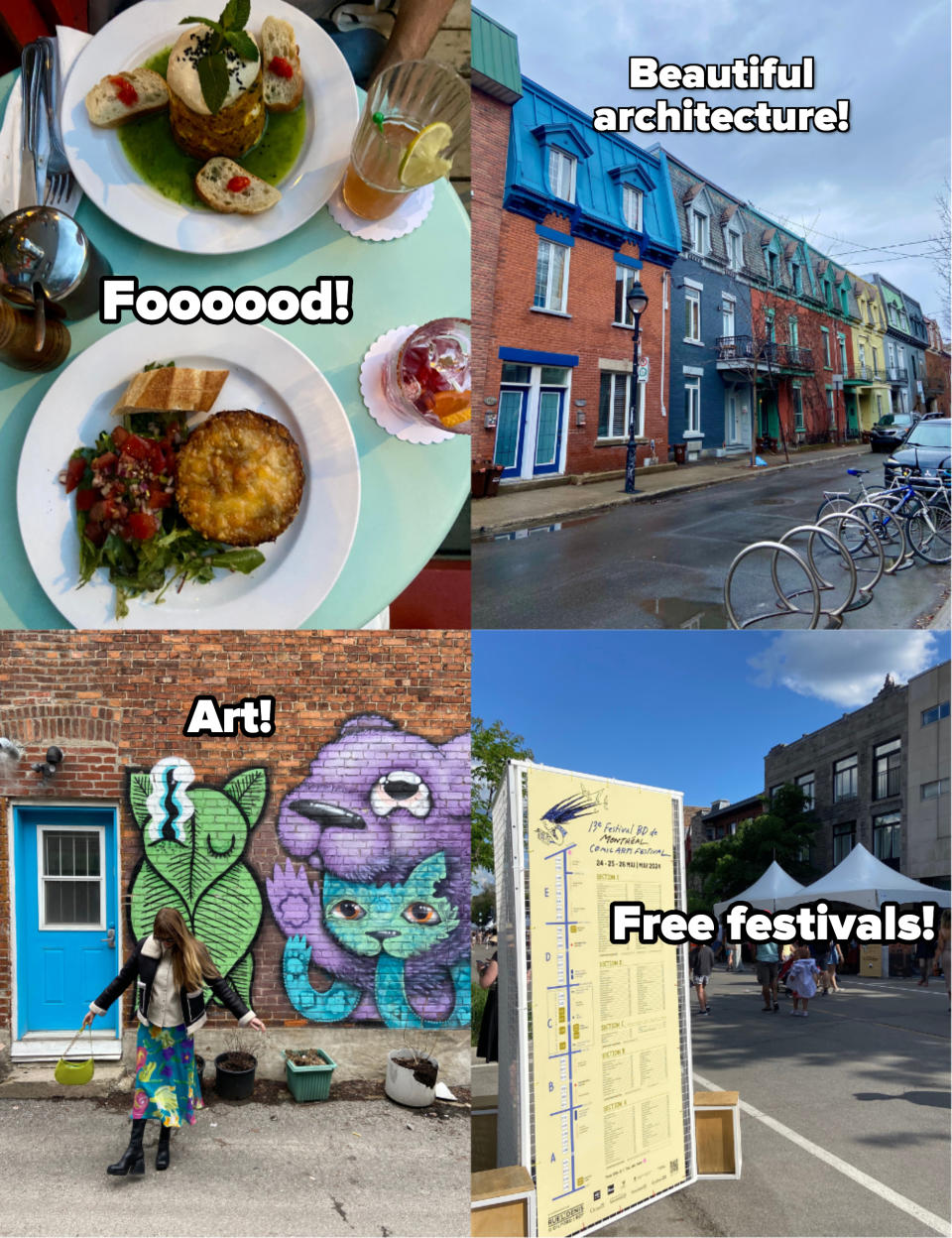
It's natural to have rose-colored glasses in the first few months and think, "This is so much better!!!" From Montréal's cultural diversity, vibrant art scene, cheaper cost of living, and better social services, that definitely was the case for many things I experienced. However, some things I initially felt — like better "politics" — kinda wore off after a while as the new culture became more natural and I got more involved.
When we first moved, it was pretty nice to feel like I lived somewhere where politics didn't feel so divisive (compared to the US). However, as I became more educated and involved in where I lived, I realized there are still politics; they're just different, and you might not be accustomed to them yet. For instance, in Québec, there's a long history between francophones and anglophones, as anglophones historically suppressed francophones in the region. Today, there are laws that govern the French language and huge efforts by the Québec government (and the political parties in power) to preserve the language and culture. Thus, everything in the city and province is greatly impacted by its unique linguistic situation. As an American, it could be easy for me to assume Montréal is a "bilingual city" and never speak French. But that would be an extreme disservice as French is the official language and so central to the culture.
6.Which leads me to this... you should try to speak the language local to the region.
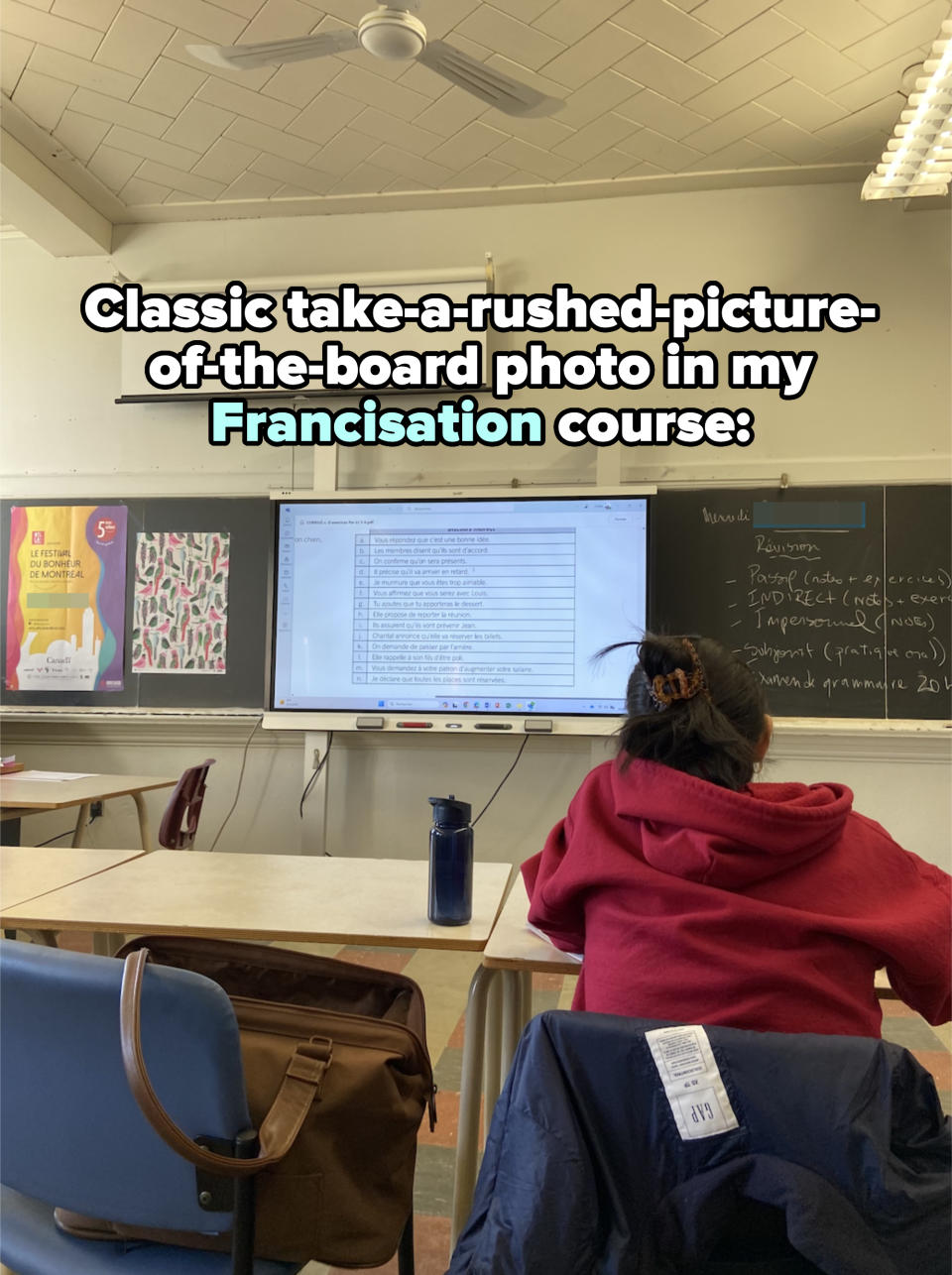
It's extremely American to assume that the people around you speak English (especially when you're in a new country!!!). No, you can't always assume people speak English! You are now an outsider (and that's ok!).
In Canada, French is an official language, and in Québec, it is the only official language. I could have spent my time only speaking English (and some people do), but I don't believe I'd fully integrate myself into the culture and surroundings if I did. From employment to workout classes to ordering coffee, French is always first there. As an outsider, I also wanted to be respectful, considering francophones have fought so hard to preserve the language.
While I wanted to speak French anyway, I also didn't really have an excuse—the government offered "Francisation" classes where they paid me to learn the language. That's how important it is to them! Additionally, the Québec government expects immigrants to receive all public services in French six months after they arrive in Québec (which has led to a bit of controversy; I myself couldn't get in classes for six months).
Personally, though, the classes were actually a great reality check on my privilege as a white American who never really had to learn another language. I was often the sole person in the class who spoke only one language. It was one of my more embarrassing moments being an American, to be honest!!! But it definitely fueled me to improve my French, and helped me understand the difficulties people face when living in a new culture and language that is not your own.
7.Some things will be better than the US... which may make it hard to want to move back.

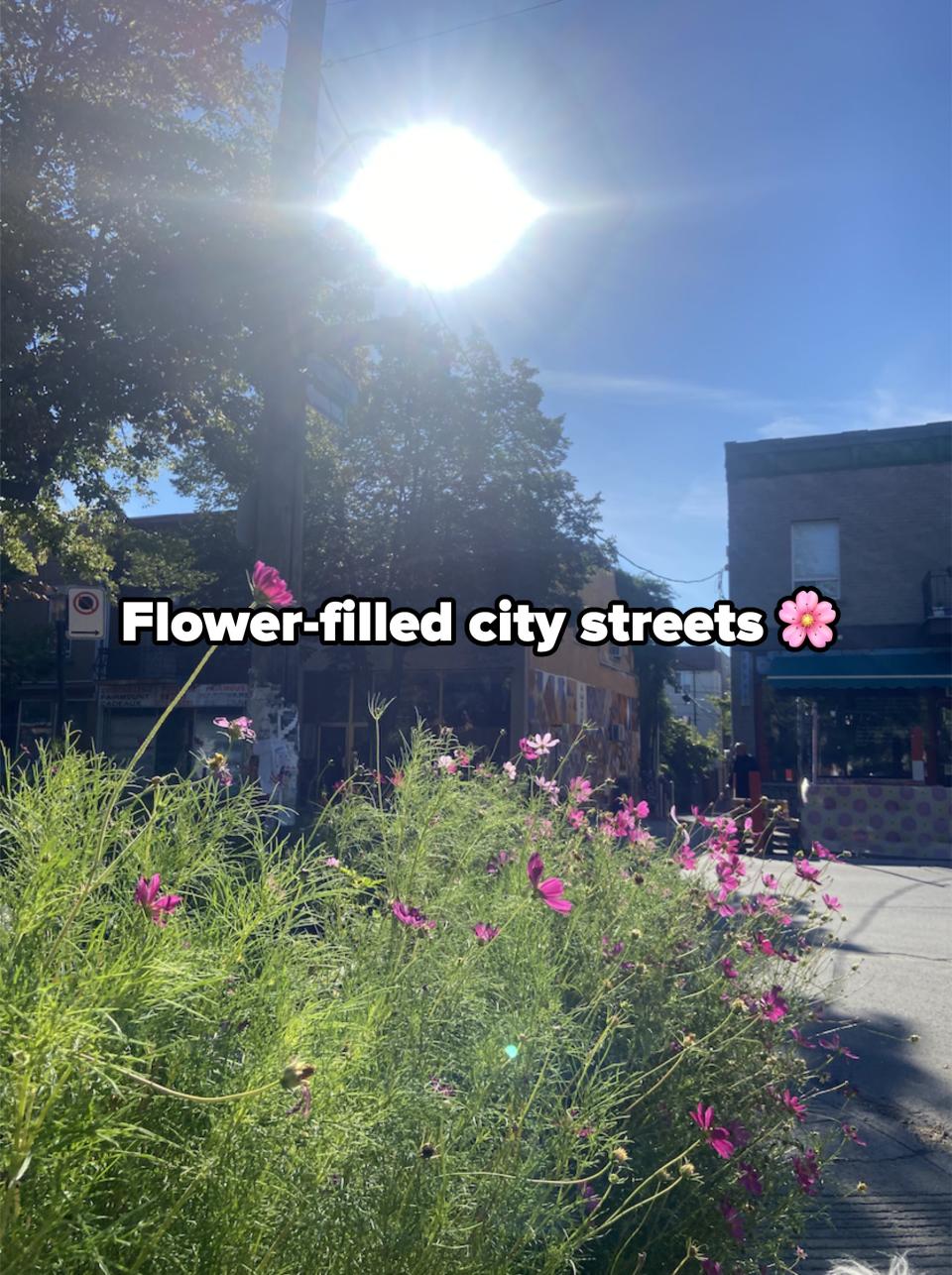
Alana Valko
In Montréal, I noticed a lot more efforts towards "social good and well-being," if that makes sense. There are shared amenities like public parks (SO MANY parks) and pools that are well-maintained and completely free. The city puts on a ton of free festivals and events in the summer (even in the winter, when they can). Much of the streets are shut down for pedestrians and have programming, like music performances and live mural painting to enjoy. During the winter, there's a park where you can rent out snowshoes and cross-country skis — completely free.
Also, one of the best parts of Montréal is its huge network of protected bike lanes — biking is one of the primary ways we get around the city (they even kept the Bixi rental bikes up last winter...)! Some bike lanes extend outside the city into national parks and nature, too — there are nearly 3,300 miles in one network alone (La Route Verte).
The city also has a committee for each neighborhood that organizes programming for the area. In the neighborhood where I lived, the city gave out free flowers during the spring to plant! Once, someone from the city came by and asked if they could plant a tree in our yard to make the street greener (no cost to us or the landlord). I just never experienced such evident acts of "social good for the citizens" as prominently in US cities (and yes, taxes are higher).
8. You might be humbled.
“America’s falling apart! I’m moving to Europe where stuff is better!” pic.twitter.com/cS37DxZFfJ
— Will (@ghoul_alert) June 28, 2024
iStock / Getty Images Plus / Via Twitter: @ghoul_alert
Americans, especially those who are not immigrants, people of color, or of a marginalized community, tend to have a "grass is greener on the other side" romanticization of other cultures and countries. As left-leaning Americans, my partner and I would both talk about the US, particularly the political and social climate, with a bit of disdain (rightfully so), but we were often humbled. And I don't mean to say this to negate what's going on in the US — from devastating political decisions from our highest court to a cost-of-living crisis affecting millions, it's dire — but I think we sometimes forget what's also happening outside our country lines.
Living as immigrants or temporary residents in a new place, we tended to be around other immigrants and temporary residents, whether it was at school, in French class, or in a meetup group (Montréal is extremely diverse). Compared to the US, our friends in Montréal are from all over the world (partially because Canada is the easier country to immigrate to in North America). Both my partner and I have friends who've fled Ukraine or even have family members still within war zones. So, when we complained about the state of the US, our reality kind of got checked. Two things can be true — the state of the US and the unrest elsewhere — but also, as white Americans who grew up in the safety of suburbia, we've been pretty safeguarded (so far) from the political unrest and displacement that our friends in places like Ukraine, Palestine, Egypt, Iran, and Venezuela have and continue to see, which was a humbling check of our privilege.
And lastly....
9.Getting into a new country can be confusing... and challenging.
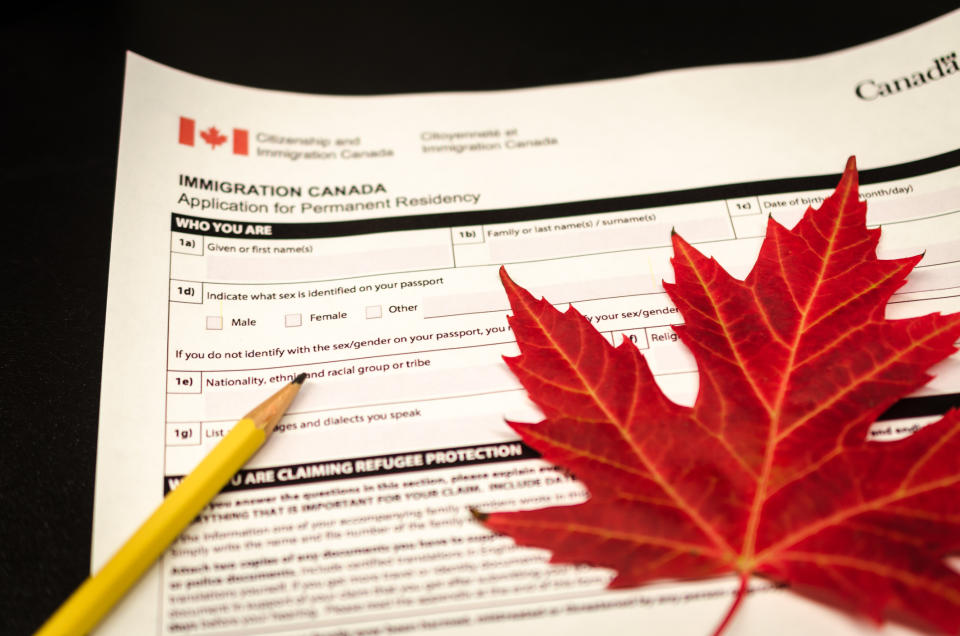
Ok, sorry for saving maybe the most important one for last, but yes, you need to have some kind of permit, visa, sponsorship, residence status, or citizenship to move to a new country. I can't speak for all immigration pathways, as I was only on a temporary permit in Canada, but I can help lay out some of my experience and knowledge from the perspective of an American immigrating to Canada.
Most Americans immigrate to Canada through the permanent residency (PR) pathway — the easiest being express entry. Express entry allows "skilled" immigrants to apply for permanent residence in areas lacking skilled Canadian workers. To qualify, you score points based on criteria such as education, age, English/French language proficiency, and Canadian work experience (it can be hard to get enough points for many people applying). Applying in Québec is different and a bit ~harder~ because of the French language requirements.
Many other people I knew immigrated by attending school in Canada first. Certain graduates of Canadian institutions are eligible to apply for the post-graduation work permit (PGWP), which allows immigrating students to stay and work in Canada after graduation. For many, it's a bridge towards permanent residency as it gives people Canadian work experience to boost their permit application score.
Other avenues included work permits, which I've heard can get a little tricky because trying to get a job that will sponsor you as a non-Canadian is very expensive for a company. If it's a closed work permit, that means you can only work for that company. Companies often have to prove that no other Canadian can fill the role a non-Canadian is applying for.
If you are immigrating temporarily, such as on a study permit like my partner did, your spouse/common-law partner is also eligible to apply for an open work permit (hi, this is my case!). This was great for our situation because even though my partner and I are not married, we were considered common-law partners in the eyes of Canada because we lived together for more than a year before our temporary immigration (we had lease documents to prove this, but I've heard of other couples using Facebook posts to prove their relationship, lol). The open work permit allowed me to apply and work for jobs in Canada (which would also contribute to my "Canadian work experience," if I wanted to apply for PR).
Phew! Ok, that was a lot of chatter, so that's a wrap from me. While I just spent many minutes talking to you about all the "hard things" I realized as a US citizen living abroad, I don't want this to discourage you! If you're considering or have the opportunity to live somewhere new, absolutely go for it. I am so thankful for my experience, and at the end of the day, all these hard truths were far outweighed by the positive experiences I had living "abroad" (I know, I know, it's Canada) — like immersing myself in a new language, meeting people from all over the world, and falling in love with the best city in the world, Montréal (seriously, it's my favorite, favorite city).
